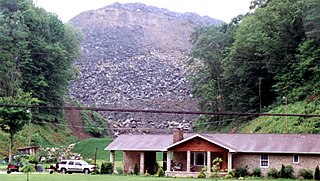
Rainforest Action Network (RAN) is an environmental organization based in San Francisco, California, United States. The organization was founded by Randy "Hurricane" Hayes and Mike Roselle in 1985, and first gained national prominence with a grassroots organizing campaign that in 1987 succeeded in convincing Burger King to cancel $31 million worth of destructive Central American rainforest beef contracts. Protecting forests and challenging corporate power has remained a key focus of RAN’s campaigns since, and has led RAN into campaigns that have led to transformative policy changes across home building, wood purchasing and supplying, automobile, fashion, paper and banking industries.

The Australian Conservation Foundation (ACF) is Australia's national environmental organisation. ACF is a community of over 700,000 people who speak out, show up and act for a world where forests, rivers, people and wildlife thrive. Founded in 1965, ACF has been a powerful voice for the environment for more than 50 years. It is an independent, non-partisan, non-profit organisation focused on advocacy, policy, research and community organising.

Mountaintop removal mining (MTR), also known as mountaintop mining (MTM), is a form of surface mining at the summit or summit ridge of a mountain. Coal seams are extracted from a mountain by removing the land, or overburden, above the seams. This process is considered to be safer compared to underground mining because the coal seams are accessed from above instead of underground. In the United States, this method of coal mining is conducted in the Appalachian Mountains in the eastern United States. Explosives are used to remove up to 400 vertical feet of mountain to expose underlying coal seams. Excess rock and soil is dumped into nearby valleys, in what are called "holler fills" or "valley fills".

Surface mining, including strip mining, open-pit mining and mountaintop removal mining, is a broad category of mining in which soil and rock overlying the mineral deposit are removed, in contrast to underground mining, in which the overlying rock is left in place, and the mineral is removed through shafts or tunnels.
Evangelical environmentalism is an environmental movement in the United States in which some Evangelical Christians have emphasized biblical mandates concerning humanity's role as steward and subsequent responsibility for the care taking of Creation. While the movement has focused on different environmental issues, it is best known for its focus of addressing climate action from a biblically-grounded theological perspective.
Jeff Biggers is an American historian, journalist, playwright, and monologist. He is the author and editor of eight books.

Christian views on environmentalism vary among different Christians and Christian denominations.

Appalachian Voices is an American environmental organization. Their stated environmental concerns include eliminating air pollution, ending mountaintop removal, cleaning up coal ash pollution and promoting renewable energy and energy efficiency.

Julia "Judy" Belle Thompson Bonds was an organizer and activist from the Appalachian Mountains of West Virginia, United States. Raised in a family of coalminers, she worked from an early age at minimum wage jobs. Bonds was the director of Coal River Mountain Watch (CRMW). She has been called "the godmother of the anti-mountaintop removal movement."
Burning the Future: Coal in America is a 2008 documentary film produced and directed by David Novack. The film focuses on the impacts of mountaintop mining in the Appalachians, where mountain ridges are scraped away by heavy machinery to access coal seams below, a process that is cheaper and faster than traditional mining methods but is damaging to the environment. Some environmental problems discussed in the film include disfigured mountain ranges, extinct plant and animal species, toxic groundwater, and increased flooding. The film's run time is 89 minutes. In 2012, it was rereleased in a shorter, updated version, that was created for public broadcast on PBS. This new version of the film’s run time is 56 minutes.
Maria Gunnoe is an environmentalist who opposes mountaintop removal mining, and is a winner of the Goldman Prize and Wallenberg Medal.
Mining in the United States has been active since the beginning of colonial times, but became a major industry in the 19th century with a number of new mineral discoveries causing a series of mining rushes. In 2015, the value of coal, metals, and industrial minerals mined in the United States was US $109.6 billion. 158,000 workers were directly employed by the mining industry.
Climate Ground Zero (CGZ), founded in February 2009, is a non-violent civil disobedience campaign against mountaintop removal mining based in the southern coalfields of West Virginia. According to their website, Climate Ground Zero believes “that the irrevocable destruction of the mountains of Appalachia and its accompanying toll on the air, water, and lives of Appalachians necessitates continued and direct action". The organization seeks to end mountaintop removal mining by drawing attention to the issue through protests involving trespass on the property of mining companies. By locking down to machinery on mine sites, occupying trees in the blast zone, or blockading haul roads to mine sites, protesters associated with Climate Ground Zero directly interfere with mining practices. Other protests draw attention to the alleged negligence of regulatory agencies such as the West Virginia Department of Environmental Protection (WVDEP) or the federal Environmental Protection Agency (EPA) by occupying the offices of these governmental organizations. Climate Ground Zero has been referenced in the New York Times, Los Angeles Times, Washington Post, Democracy Now, and the Associated Press.
The Last Mountain is a feature-length documentary film directed by Bill Haney and produced by Haney, Clara Bingham and Eric Grunebaum. The film premiered at the 2011 Sundance Film Festival and went into general release on June 3, 2011. The film explores the consequences of mining and burning coal, with a particular focus on the use of a method for coal strip-mining in Appalachia commonly known as mountaintop removal mining.
Larry Gibson was an anti-mining environmentalist from West Virginia, who spent the majority of his adult life opposing mountaintop removal coal mining in the area, specifically at Kayford Mountain. He was president of the Keeper of the Mountains Foundation and lifetime member of the Sierra Club. He also was a board member for the Ohio Valley Environmental Coalition.

Daniel Martin Moore is an American singer, musician, songwriter, and producer.
Mountain Justice is a grassroots movement established in 2005 to raise worldwide awareness of mountaintop removal mining and its effects on the environment and peoples of Appalachia. The group seeks to encourage conservation, efficiency, solar and wind energy as alternatives to all forms of surface mining. It self-describes as "a regional Appalachian network committed to ending mountaintop removal". It seeks justice because the mountaintop removal (MTR) it opposes is a form of coal mining known as mountaintop removal mining which produces coal sludge toxic waste which is stored in a dam on the mountain and leaches into the groundwater, which poisons the environment, which defaces the top of the mountain, and which is not stopped due to political corruption.

The Hobet 21 Coal Mine in West Virginia was operational between 1974 and 2015. Straddling the border of Boone County and Lincoln County in the Appalachian Mountains, the Hobet 21 mine was one of the largest mountaintop-removal coal mining operations in West Virginia. Originally owned by Fil Nutter, the mine used both underground mining and strip mining techniques, and later even more intensive surface mining using a dragline. Increasing productivity and profitability encouraged workers to successfully strike for their health plan in 1993, which resulted in unusually thorough coverage for mine workers at this time. The Hobet mine was incorporated into Arch Coal in 1997, along with several other mines, following booming coal demand. The mine was sold two more times: to Magnum Coal in 2005 and to Patriot Coal in 2008. Patriot Coal subsequently went bankrupt in 2015, and the Hobet site was passed into a Virginia-based conservation firm who continued to mine the land while reclaiming and planting trees to offset carbon emissions for other companies.

Environmental justice and coal mining in Appalachia is the study of environmental justice – the interdisciplinary body of social science literature studying theories of the environment and justice; environmental laws, policies, and their implementations and enforcement; development and sustainability; and political ecology – in relation to coal mining in Appalachia.

Environmental issues in Appalachia, a cultural region in the Eastern United States, include long term and ongoing environmental impact from human activity, and specific incidents of environmental harm such as environmental disasters related to mining. A mountainous area with significant coal deposits, many environmental issues in the region are related to coal and gas extraction. Some extraction practices, particularly surface mining, have met significant resistance locally and at times have received international attention.











